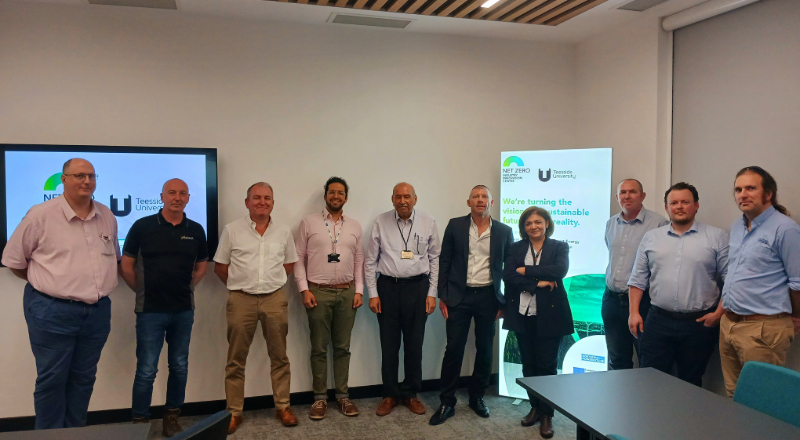
The academics are working alongside KP Snacks Ltd. to investigate ways in which hydrogen can be incorporated into its production processes.
KP Snacks Ltd., which has a production facility in Billingham, manufactures some of the UK’s most recognisable snack brands including Hula Hoops, McCoy’s and Skips.
To meet its net zero ambitions, KP Snacks Ltd. is looking at ways in which hydrogen can be substituted for natural gas within its production lines.
Teesside University, through its Net Zero Industry Innovation Centre (NZIIC), is working with the company to investigate the best way it can reduce its emissions by switching to the alternative fuel.
The £678,000 study, which is being part-funded by the UK government’s Industrial Energy Transformation Fund (IETF), will also involve collaboration with technical experts bp, SAACKE Combustion Services, Heat & Control, and Intellect.
The IETF supports the development and deployment of technologies that enable businesses with high energy use to transition to a low carbon future.
The study is investigating two different scenarios:
The study will develop conceptual engineering designs to calibrate the model as close as possible to a real case deployment, as well as providing an in-depth understanding of health and safety requirements, hydrogen supply to the site (with a storage solution if required), hydrogen blending methodology, along with an economic assessment for all areas.
The IETF has given us the opportunity to collaborate with like-minded experts to develop a model for hydrogen use in our process and allow us to be at the front of that technical challenge.
The study will focus on its Teesside production facility, but with collaboration from the company’s other six production sites in the UK, all completed with the aim to move to a controlled production trial if proven feasible through the study.
The NZIIC, based at Middlesbrough’s Teesside Advanced Manufacturing Park, opened last year and is playing a key role in the delivery of the UK’s net zero ambitions through building connections between industry, research facilities, and higher education.
Professor Michael Short, Professor of Control Engineering and Systems Informatics in Teesside University’s School of Computing, Engineering & Digital Technologies, and head of its Centre for Sustainable Engineering, said: 'KP Snacks is one of the UK’s foremost food producers and has set itself tough targets to reduce its emissions.
'Switching to hydrogen will have a major impact on making its production processes more sustainable and we are delighted to be working alongside KP to utilise our expertise around net zero innovation to help them deliver these ambitions.'
Craig Tether, Engineering Operations manager (UK) in KP Snacks Ltd. said: 'KP Snacks Ltd. is committed to making a better world for generations to come and recognises that the climate crisis is here and needs action now.
'We take the need for decarbonisation seriously and recognise that reducing our reliance on natural gas is essential but with some significant technical challenges.
'The IETF has given us the opportunity to collaborate with like-minded experts to develop a model for hydrogen use in our process and allow us to be at the front of that technical challenge.
'We are delighted to be working with Teesside University on this transformational project.'
We invite businesses to join forces with the Net Zero Industry Innovation Centre on this transformative journey. Together, we will accelerate innovation, shape sustainable practices, and forge a path toward net zero emissions. Let's create a legacy that resonates locally and inspires globally.

*The Net Zero project is receiving up to £8.85m of funding from the England European Regional Development Fund as part of the European Structural and Investment Funds Growth Programme 2014-2020. The Ministry of Housing, Communities and Local Government (and in London the intermediate body Greater London Authority) is the Managing Authority for European Regional Development Fund. Established by the European Union, the European Regional Development Fund helps local areas stimulate their economic development by investing in projects which will support innovation, businesses, create jobs and local community regenerations. For more information visit https://www.gov.uk/european-growth-funding.